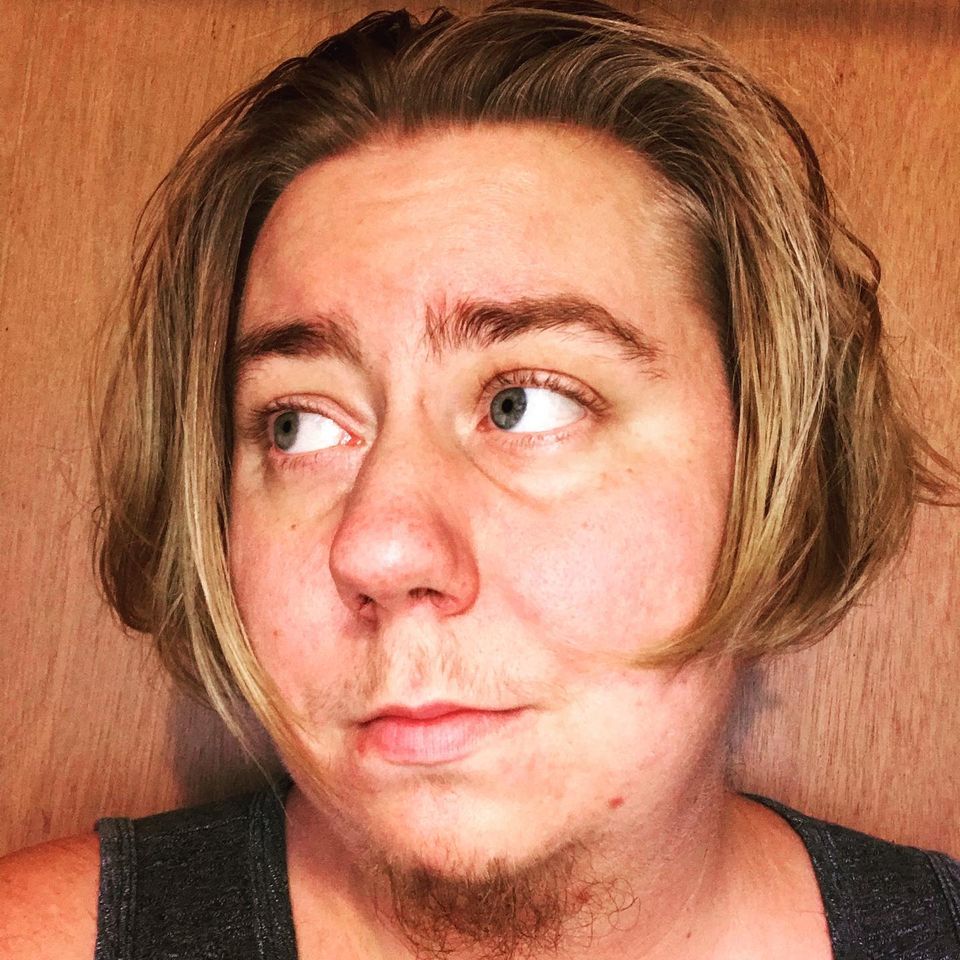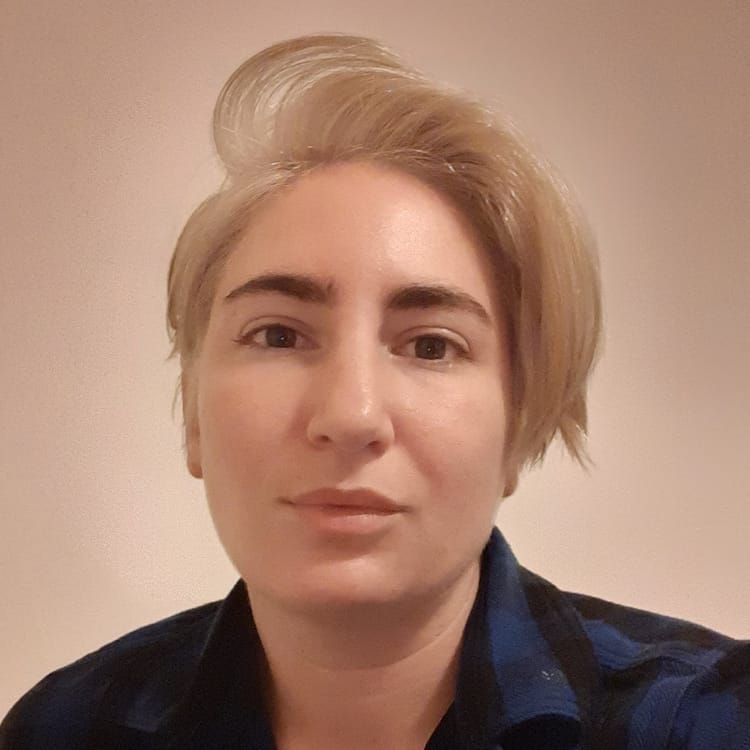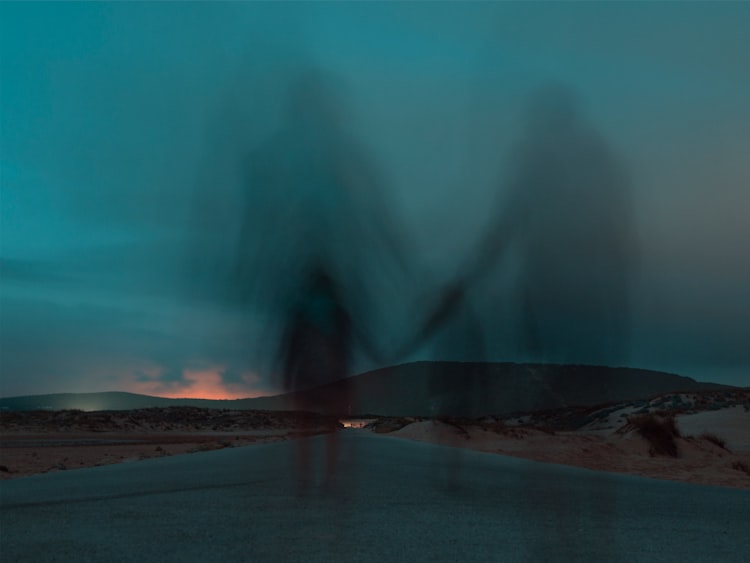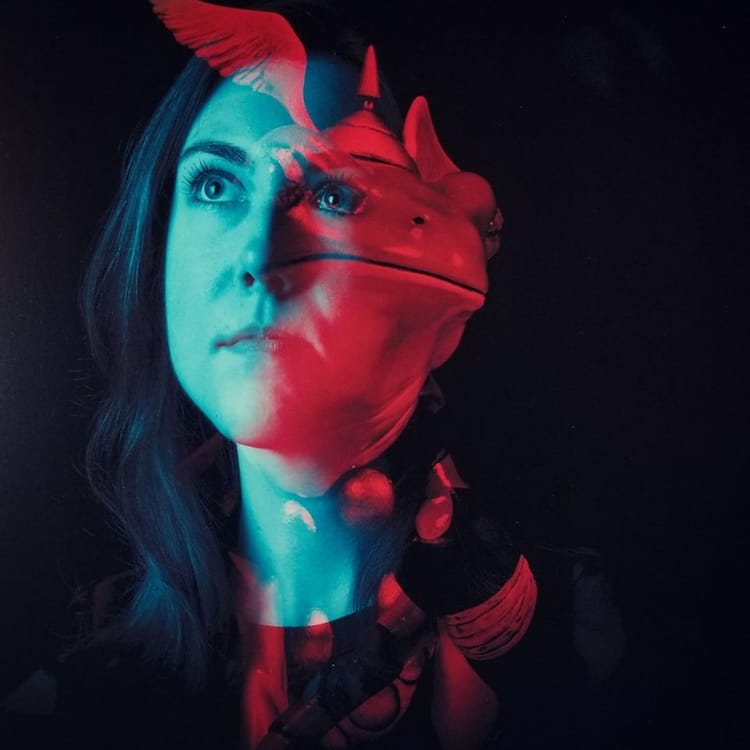Personal Canons: The Last Unicorn
In addition to my own reflections and guest posts from brilliant folks in the writing community, the Personal Canons series will also feature essays purchased from among the many dazzling submissions I received in response to my open call. Last time, Suzanne Walker wrote about Lloyd Alexander. Today, I’m thrilled to feature David Minerva Clover.
David Minerva Clover is a queer and transgender writer, artist, and parent. You can find his work in The Washington Post, Huffington Post, Parents, and other fine publications on the internet. He lives in Michigan with his partner, child, and a long list of wonderful animals. For irregular updates about a variety of subjects, you can check out his newsletter, Concerning Hobbits. David’s favorite dinosaur is the Parasaurolophus.

In the 1982 animated version of The Last Unicorn, the harpy has tits, which is almost as cool as the entire soundtrack being written by the band America.
One of my mom’s friends bought me the film on VHS while I was still in elementary school because “I figure you like unicorns” and it utterly terrified me. The Red Bull was pretty scary, but to my sheltered mind the light swearing was scandalizing, and oh my god, the bird with tits. I was scared in the way that inspires obsession, and that led me to reading the novel by Peter S. Beagle.
Some nerdy kids jump head first into their nerdiness and find solace with other nerdy kids. I was perpetually in denial. In middle school, I regularly told friends that my parents didn’t have less money than their parents, they just happened to be very tight with money. I refused to read The Lord of The Rings, it was such an obvious fantasy classic! And I was in deep denial about my gender. I was avoiding typically geeky things the same way I was avoiding boys’ pants: I couldn’t deal with the possibility that if I tried them on, they’d feel right. But The Last Unicorn snuck in.
Published thirteen years after the last installment of The Lord of The Rings, The Last Unicorn at once belongs to, and doesn’t belong to, the genre of classic fantasy. It refuses to decide whether or not it’s for children, the same way it refuses to be a typically “girly” unicorn story. It combines the easy whimsy and reliance on fairy tale tropes of C.S. Lewis with the flowery and long winded descriptions of Tolkein. The book starts out by describing the unicorn in detail, mainly by telling us that most descriptions of unicorns are wrong. I loved it immediately and completely.
It is a story about loneliness, and it’s a story about pretending, and how faking it can easily take on a life of its own.
The unicorn is officially the main character, although I would argue that as soon as the magician, Schmendrick, shows up, we see the story through his eyes. The unicorn is happy living alone until she’s told she’s the very last unicorn, and suddenly she must set out to try to find “her people.” I know, logically, that Beagle didn’t write it for queer kids on the internet, but the parallel is too real. On her journey she learns that people see her as a horse (even though unicorns do not actually look like horses). A witch puts a spell on her to give her a false horn people can see. She meets a magician, who eventually puts a spell on her to turn her into a human girl, officially to protect her, but maybe also just to prove that he could. The action takes her, an immortal magical being, and places her in a mortal, dying, body.
Conversely, Schmendrick the magician is a human, a mortal, living under a curse that makes him immortal until he can master his magical powers. Their stories mirror and contrast each other.
And then there is Molly Grue, a middle aged woman who ran off with a rogue for life in the woods when she was young, and regrets it. Her man is a false Robin Hood figure, more concerned with his image than helping anyone, and she leaves him easily for a unicorn. There’s a king who has become evil by being obsessed only with the idea of happiness, a prince who isn’t truly a prince, a witch who knows her magic lies only in illusions and is desperate to be close to power even if it kills her, and a town cursed with plenty. The stories are rich and interwoven, while often staying funny and light. Beagle paints a world that feels medieval, the kind of landscape we expect for wizards and unicorns, and then he self consciously adds in magazines and tacos. He knows when to explain things, and when to let it go.
The story combines satisfying prophecies with jokes in a way Tolkein would never have attempted and Lewis wasn’t capable of. The heroes banter. They rage at each other, point out each other’s flaws, and emerge on the other side with new scars rather than perfect rewards.
As a young person who was hiding from himself, I identified with the story and its characters deeply. As a writer and an artist, it showed me what was possible in terms of craft and storytelling. I love other fantasy novels, I’ve learned to let go of my self consciousness about it, but they don’t challenge me the same way. I keep it close to me, not because it’s “one of the classics,” but because it’s a deeply beautiful, funny, at times awkward, little book.
It is one of the books I keep loaning out. I can’t make it as important to other people as it is to me, but somehow I keep trying.
I went to school for painting. One year, after painting huge portraits for years, I became obsessed with the idea of painting a small still life, and painting it so well that it would be perfect without relying on flashiness. As I slowly edit my first novel, I think about that. A thousand page epic story might be satisfying in one way, but it wouldn’t pack the same punch as this well proportioned little book.
The book never mentions bird tits, but please, read it anyway.
Personal Canons is a series exploring the works of genre fiction that have shaped us as readers, writers, and people. This series features contributions by established authors, new and aspiring authors, readers, and fans.
Care for yourself and the people around you. Believe that the world can be better than it is now. Never give up.






Member discussion